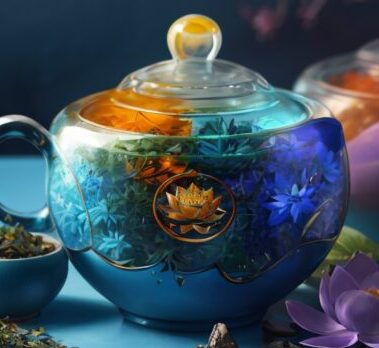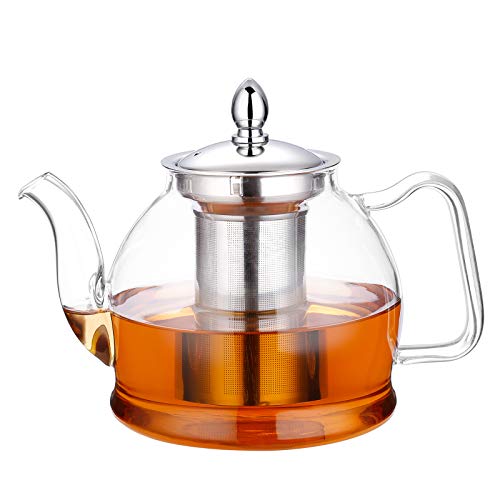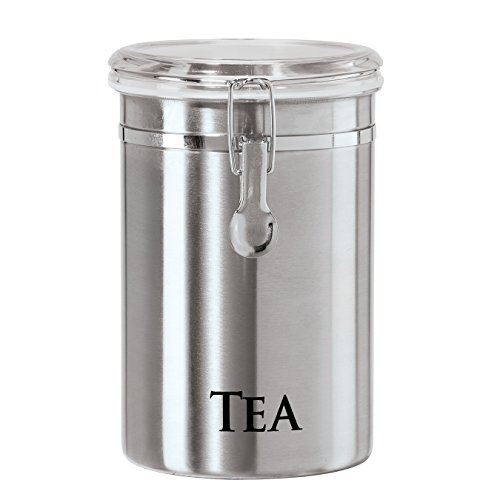Hey there! Are you on a quest to take better care of your heart? Well, look no further because we’ve got something amazing to share with you. In this blog post, we will be diving into the world of heart-healthy tea and showing you just how simple it is to make it a part of your everyday life. So, grab a comfy seat, and get ready to sip your way to a healthier, happier heart. You deserve it!
Sip your way to a healthier heart with our bestselling, heart-healthy teas!
Understanding the Benefits
Tea has been enjoyed for centuries not only for its taste but also for its numerous health benefits. Among its many benefits, tea possesses heart-healthy properties that can help improve cardiovascular health. In this blog section, we will delve into the various heart-healthy properties of tea, such as antioxidants and flavonoids, and explain how they can positively impact your heart health.
Antioxidants: The Guardians of Heart Health
One of the key properties of tea that contributes to its heart-healthy benefits is its high antioxidant content. Antioxidants are compounds that help protect our cells from damage caused by harmful free radicals. Here’s how antioxidants contribute to heart health:
- Reducing oxidative stress: The antioxidants found in tea can help reduce oxidative stress in the body by neutralizing free radicals. This can help prevent damage to the cells and tissues of the cardiovascular system.
- Lowering inflammation: Chronic inflammation can increase the risk of heart disease. The antioxidants in tea have anti-inflammatory properties, which can help reduce inflammation in the arteries and promote better heart health.
Flavonoids: Promoting Cardiovascular Wellness
Tea is rich in a group of antioxidants called flavonoids, which have been shown to promote cardiovascular wellness. Here’s how flavonoids contribute to heart health:
- Lowering blood pressure: Flavonoids can help relax and widen blood vessels, which can lead to lower blood pressure. By reducing high blood pressure, tea can help prevent conditions such as hypertension and improve overall cardiovascular health.
- Enhancing heart function: Flavonoids can improve the flow of blood to the heart by enhancing the function of blood vessels. This can improve cardiac performance and reduce the risk of heart-related problems.
- Reducing blood clot formation: The flavonoids in tea have blood-thinning effects, which can help prevent the formation of blood clots. Blood clots can obstruct blood flow, leading to serious cardiovascular events such as heart attacks and strokes.
Comparing Types of Tea: Which is Best for Your Heart?
While all types of tea contain antioxidants and flavonoids, certain varieties stand out for their heart-healthy benefits. Here’s a comparison:
| Tea Variety | Antioxidant Content | Flavonoid Content | Heart-Healthy Benefits |
|---|---|---|---|
| Green Tea | High | High | Lower blood pressure, reduce LDL cholesterol levels, improve arterial function |
| Black Tea | Moderate | Moderate | Reduce the risk of heart disease, improve cardiovascular health |
| White Tea | High | High | Lower blood pressure, improve blood vessel function |
| Oolong Tea | Moderate to High | Moderate to High | Decrease the risk of heart disease, improve heart health |
Keep in mind that these comparisons are general, and the specific benefits may vary depending on factors such as brewing time, quality of leaves, and individual health profiles.
Making Tea a Part of Your Heart-Healthy Lifestyle
Incorporating tea into your daily routine is a simple step you can take to support your heart health. Here are a few tips to make the most of tea’s benefits:
- Opt for unsweetened tea: Added sugar can negate the health benefits of tea. Instead, enjoy your tea without any sugar or opt for natural sweeteners like honey or stevia.
- Brew it properly: To maximize the release of antioxidants and flavonoids, steep your tea properly. Follow the recommended brewing time and temperature specific to the type of tea you are using.
- Diversify your options: Experiment with different types of tea to get a variety of antioxidants and flavonoids in your diet. Green, black, white, and oolong teas all offer unique health benefits.
By making tea a regular part of your heart-healthy lifestyle, you can reap the benefits of its antioxidants and flavonoids, and take a tasty step towards better cardiovascular health!
Choosing the Right Tea
Tea is not only a popular beverage but also has numerous health benefits. It is a rich source of antioxidants and can do wonders for your heart health. However, with so many types of tea available, choosing the right one for your heart can be a daunting task. Let’s explore the different types of tea known for their heart-healthy benefits and find out which one suits your taste and preferences.
Green Tea: Nature’s Elixir
Key Points:
- Known for its high levels of catechins, a type of antioxidant.
- Contains compounds that help lower LDL cholesterol levels.
- Promotes heart health and reduces the risk of heart diseases.
Green tea has gained worldwide recognition for its health benefits, especially when it comes to heart health. It is made from the leaves of the Camellia sinensis plant and is known for its delicate flavor and vibrant green color. Here are some reasons why green tea is considered a heart-healthy choice:
Antioxidant Powerhouse: Green tea is rich in catechins, which are powerful antioxidants. These antioxidants help neutralize harmful free radicals in the body and reduce oxidative stress, thereby reducing the risk of heart diseases.
Cholesterol Control: Studies have shown that the compounds present in green tea can help lower LDL (bad) cholesterol levels, which is important for maintaining good heart health.
Blood Pressure Regulation: Regular consumption of green tea has been linked to lower blood pressure levels. High blood pressure is a major risk factor for heart diseases, and green tea can help keep it in check.
Black Tea: Bold and Beneficial
Key Points:
- Contains antioxidants called theaflavins and thearubigins, which promote heart health.
- Helps improve heart function and boost cardiovascular health.
- Beneficial for reducing the risk of high blood pressure.
Black tea, known for its robust flavor and dark color, is another excellent choice for heart health. It undergoes a fermentation process that gives it its unique qualities. Consider the following benefits of black tea:
Theaflavins and Thearubigins: Black tea contains antioxidants called theaflavins and thearubigins. These compounds have been found to have potential heart-protective effects by reducing LDL cholesterol, improving heart function, and supporting cardiovascular health.
Blood Pressure Management: Research suggests that regular consumption of black tea may help reduce the risk of high blood pressure. This is beneficial for maintaining optimal heart health.
Brain Health: Black tea also contains caffeine, which can enhance mental alertness and focus, promoting overall well-being and better cognitive function.
Herbal Tea: Nature’s Remedy
Key Points:
- Herbal teas are caffeine-free and can be enjoyed at any time of the day.
- Different herbal teas offer various health benefits for heart health.
- Some herbal teas, like hibiscus tea, may have a positive impact on cholesterol levels.
When it comes to herbal teas, the options are endless, with each offering unique flavors and health benefits. Here are a few popular herbal teas known for their heart-healthy properties:
Hibiscus Tea: Hibiscus tea is rich in antioxidants and may help lower LDL cholesterol and blood pressure levels. It also has a refreshing taste, making it an enjoyable choice.
Chamomile Tea: Chamomile tea is known for its calming properties and can help reduce stress and anxiety. By managing stress levels, it indirectly benefits heart health.
Peppermint Tea: Peppermint tea is not only delicious but also aids in digestion. It can help reduce cholesterol levels, which is beneficial for maintaining a healthy heart.
Rooibos Tea: Rooibos tea is packed with antioxidants and is naturally caffeine-free. It is known to help regulate blood pressure and reduce the risk of heart diseases.
By exploring and incorporating different types of herbal teas into your routine, you can enjoy a range of flavors while reaping the heart-healthy benefits they offer.
This guide serves as a starting point to help you choose the right tea for your heart health. Whether you prefer the delicate flavor of green tea, the robustness of black tea, or the diverse options of herbal tea, incorporating tea into your daily routine can be a tasty and heart-healthy choice. So, go ahead, explore various types of tea, and select the one that suits your taste buds and promotes your overall well-being.
Preparing and Enjoying Tea
Tea is not only a comforting and delicious beverage but also a fantastic addition to a healthy lifestyle. Whether you prefer black, green, oolong, or herbal teas, there are numerous benefits to be gained from enjoying a cup of tea daily. In this blog section, we will provide practical tips on how to brew the perfect cup of heart-healthy tea and explore creative ways to incorporate it into your daily routine.
Brewing The Perfect Cup of Tea: A Steeped Success
When it comes to brewing tea, there are a few crucial factors to consider to ensure you extract the optimal flavor and health benefits. Let’s dive in!
1. Water Temperature: The Goldilocks Effect
Different types of tea require varying water temperatures to achieve the best results. Here’s a quick guide:
- Black Tea: Boiling water (100°C/212°F) is ideal for black tea, as it helps to unlock its robust flavor and aroma.
- Green Tea: Lower the temperature slightly to around 70-80°C (158-176°F) to prevent the delicate leaves from becoming bitter.
- Oolong Tea: Opt for water around 90°C (194°F) to 95°C (203°F) for oolong tea, striking a balance between the brewing temperatures of black and green teas.
- Herbal Tea: Since herbal teas are often made from a variety of plants, it’s best to use boiling water to extract their full flavor potential.
2. Steeping Time: The Art of Patience
The length of time you steep your tea greatly impacts its taste. Follow these general guidelines:
- Black Tea: Steep black tea for 3-5 minutes, depending on your preferred strength.
- Green Tea: 2-3 minutes of steeping for green tea is usually sufficient, but feel free to adjust to your taste.
- Oolong Tea: Steep oolong tea for 3-5 minutes to fully appreciate its wonderfully complex flavors.
- Herbal Tea: Herbal teas often require a longer steeping time of 5-7 minutes to extract their medicinal qualities fully.
Remember, steeping for too long may result in a bitter taste, so keep an eye on the clock!
3. Serving Suggestions: It’s All in the Presentation
To elevate your tea-drinking experience, pay attention to how you serve your delicious brew. Try these ideas:
- Use elegant, clear glass teaware to showcase the vibrant colors of your teas.
- Add a squeeze of lemon or a sprig of mint to enhance the flavor and aroma.
- Sweeten your tea with a touch of honey or agave syrup for a pleasant, light sweetness.
- Consider pairing your tea with suitable food counterparts. For example, green tea pairs wonderfully with sushi or light salads, while black tea complements heartier dishes like roasted meats or chocolate desserts.
Creative Ways to Incorporate Tea: Beyond the Cup
Now that you have mastered the art of brewing, let’s explore how to incorporate tea into your daily routine in creative and healthful ways.
1. Tea Smoothies: A Nutrient-Packed Twist
Enhance the nutritional value of your smoothies by using tea as a flavorful base. Here are a few ideas:
- Brew a strong cup of green tea, let it cool, and use it as a substitute for water or milk in your favorite smoothie recipe.
- Matcha, a powdered form of green tea, adds a vibrant green color and a subtle earthy taste to your smoothies. Blend it with fruits, yogurt, and a splash of honey for a refreshing and energizing treat.
2. Tea-Infused Recipes: Culinary Creativity
Expand your culinary horizons by incorporating tea into your recipes. Here are some examples:
- Replace the liquid component in cakes or muffins with brewed tea to infuse delightful flavors into your baked goods.
- Create a delightful glaze or marinade by adding brewed tea to the mix. Experiment with black, green, or herbal teas to match the flavors of your dish.
- Infuse rice or grains with tea while cooking to impart a subtle hint of flavor and add vibrancy to your side dishes.
Tea offers endless possibilities in the kitchen and can transform your meals into unique culinary delights.
Whether you want to brew the perfect cup of tea or experiment with creative tea-infused recipes, incorporating tea into your daily routine can enhance your overall well-being. Enjoy a moment of tranquility and savor the deliciousness that this heart-healthy drink brings to your life. Cheers to a healthier, happier you!
*Disclaimer: Always consult your healthcare professional for any specific dietary or health concerns.
Wrap up your journey to a healthier heart with these final thoughts
In conclusion, by adding heart-healthy tea to your daily routine, you’re making a positive step towards taking care of your heart. It doesn’t have to be complicated – just a cup or two a day can make a difference. So, whether you choose to savor a warm cup in the morning or enjoy a cool iced tea in the afternoon, make it a habit and enjoy the delicious taste while supporting your heart health. Cheers to a healthier heart!












